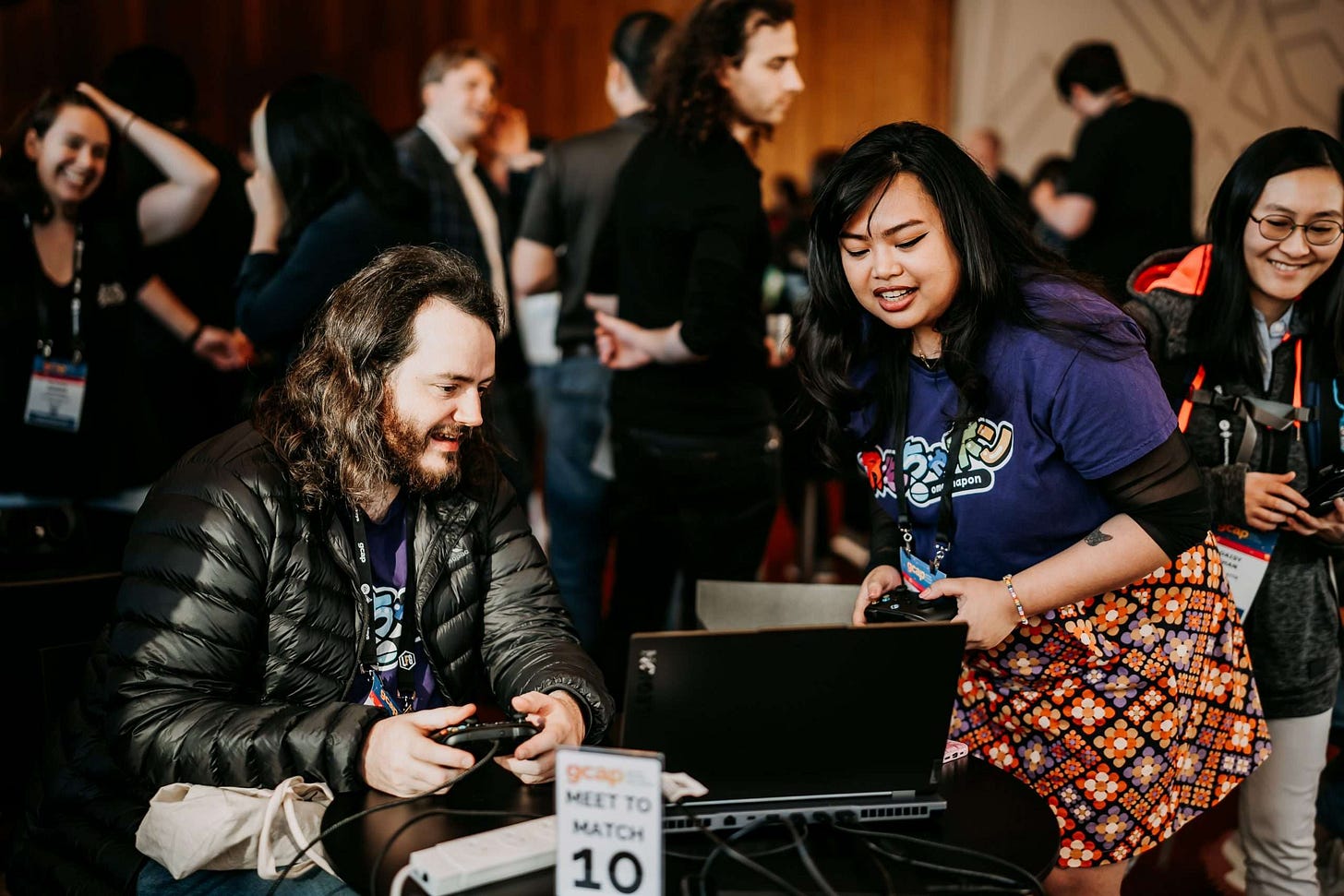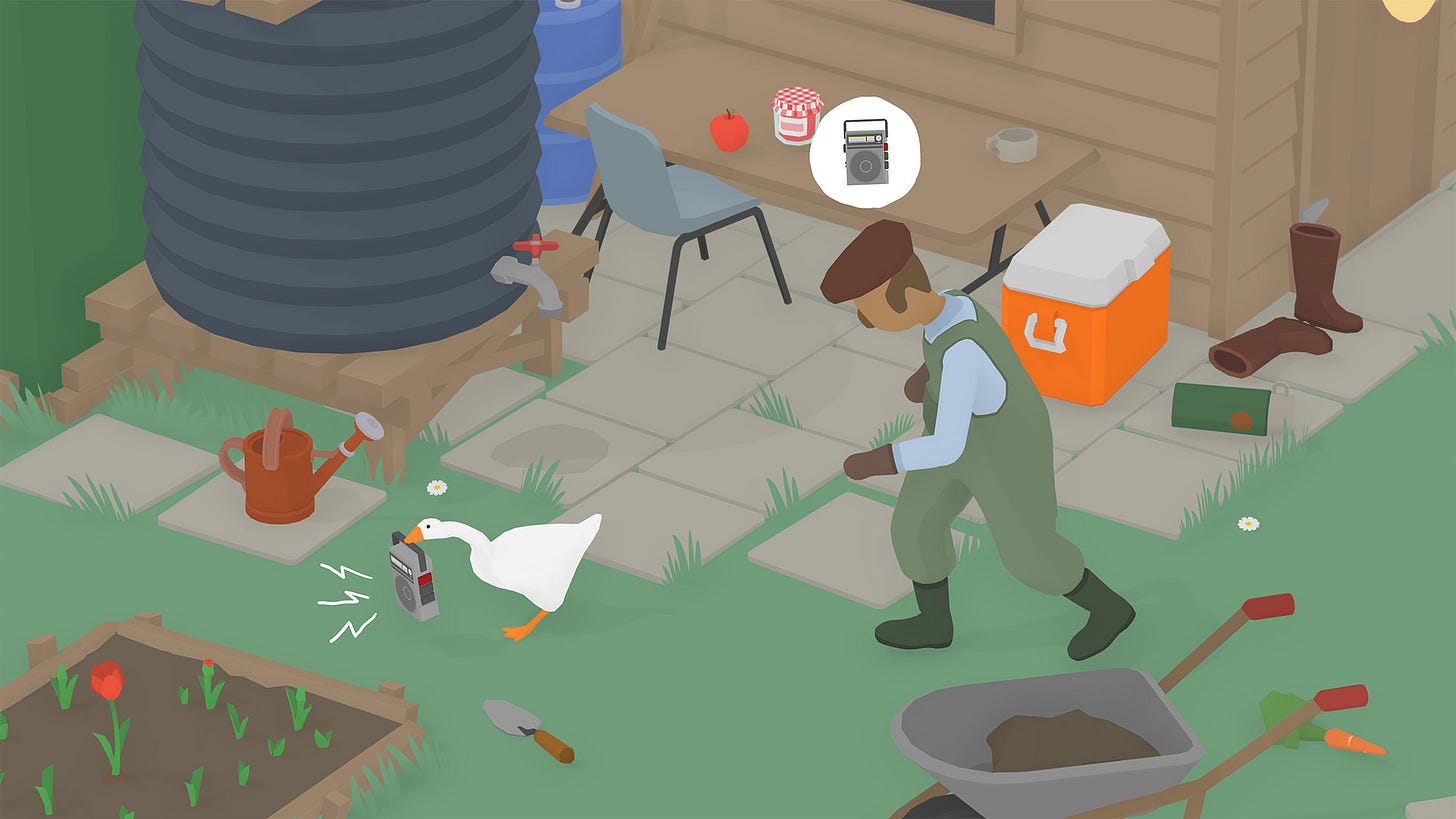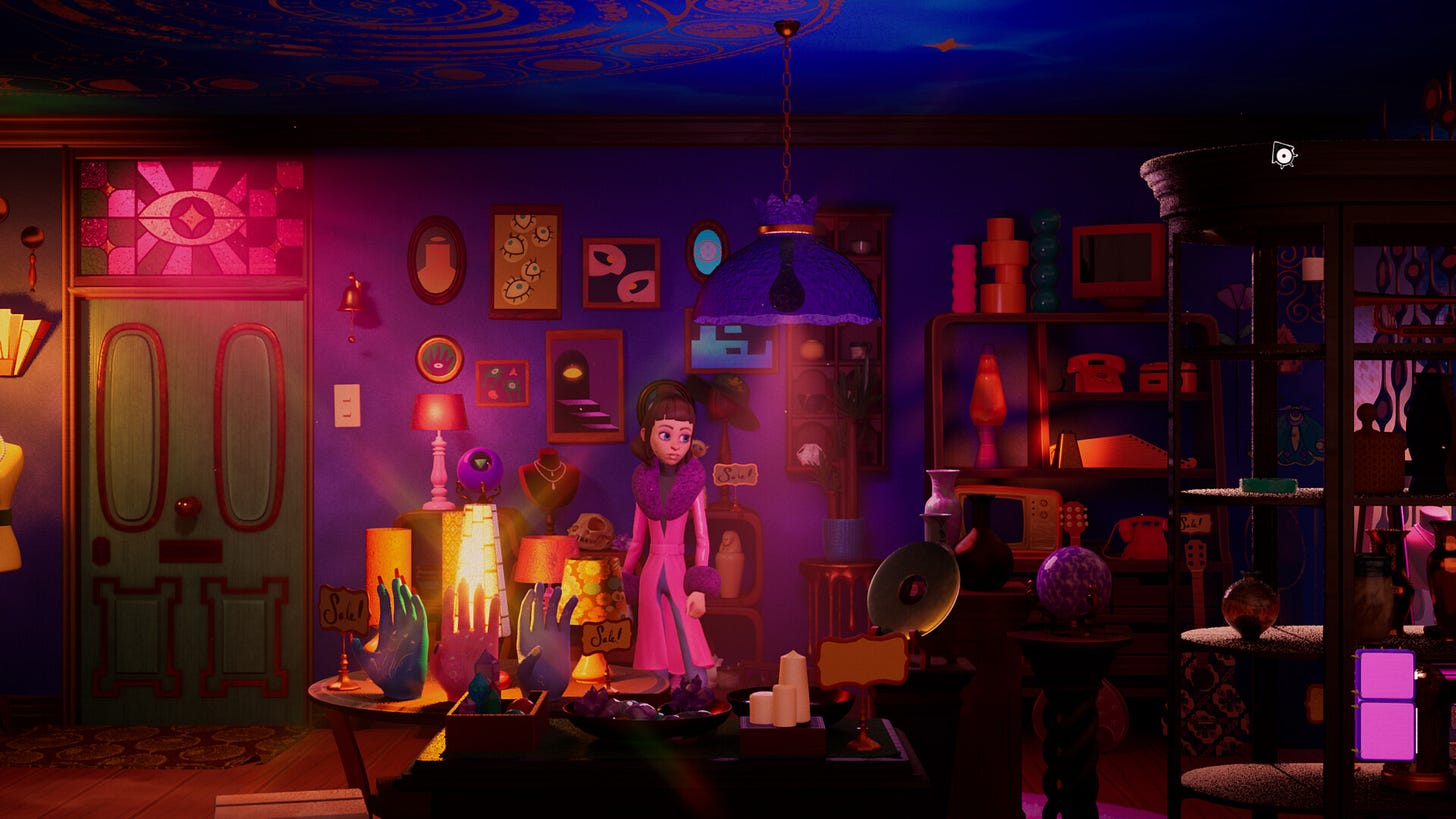How are Australia's game developers handling the vibe-shift?
Is there a secret to surviving 2025?
My guest for this issue of Multiplier is Ally McLean Hennessey. Ally is the game director at Lemonade Games, a Sydney-based studio is currently working on their debut title Mystiques: Haunted Antiques (which picked up the People’s Choice Award at SXSW Sydney 2024). In addition to founding The Working Lunch initiative, she has worked at a number of notable Australian game studios over the years, from League of Geeks and Mighty Kingdom to Wargaming and The Voxel Agents.
Fergus: Australia’s game development scene has been through a number of different incarnations over the past forty or so years. In the early 2000s, the conversation was dominated by local standouts like Krome and Team Bondi as well satellite studios like Pandemic Studios and Irrational Games Australia. Then, after the 2008 financial crisis and the arrival of the iPhone, you saw an era defined by much smaller teams like Halfbrick. The line between the broader economic climate and the viability of Australian game development is easy to see and it seems like knowing when to lean in on those swings is key for those looking to not just survive in the industry but thrive in it.
Nowadays, Australian games are more prominent, ambitious and diverse. It feels like every year has at least one global breakout on the level of Untitled Goose Game to Cult of the Lamb and Unpacking. There are some pretty big distinctions to be made between those three examples but given that consistent pattern of producing releases that swing above our weight as a region, it’s hard to resist trying to read between the lines and find something that links them together. What stands out to you when it comes to the vibes of Australia’s game developer landscape these days?
Ally: I actually don't think there is a defining quality of the Australian scene as it stands currently. The local game dev scene is bigger than it has ever been in my time, and as a result I think it's more fractured and harder to define than ever before. When I first started making games, it felt like The Arcade in Melbourne was the heart of the independent scene. It seemed that all roads lead to The Arcade. That's certainly not true anymore - and not just because The Arcade is dead.
These last two years have obviously been devastating for the industry side of the scene with swathes of layoffs and studio closures. The status quo has been interrupted. One of the many interesting results of that is the diminished importance (and feasibility for many developers) of attending Melbourne Games Week. It no longer seems necessary, or even viable, to make the pilgrimage with new events and initiatives forming in local communities to create similar opportunities for devs to find support and connection.
I change my mind day to day on whether this is good or not. I don't think it's healthy to have participation in a development community gated by region, or by expensive conferences and festivals. However I also feel nostalgic for the feeling that the whole country was together and exchanging ideas.
What stands out to me right now is that there is enormous talent and inventiveness in our country, which presents huge opportunity. Whether the powers that be - publishers, investors, government departments, cultural institutions, taste-makers - can see and nurture that opportunity so that we don't lose that talent in this fraught environment remains to be seen.
Fergus: Bigger and more fractured isn’t quite a vibe but it definitely feels like both qualities embody the state of the Australian gaming landscape right now. It’s true that a larger game development industry comes with a lot of opportunity, but that scale also brings additional complications. It can be harder to sustain yourself if you’re a bigger fish in the pond, let alone continue to grow. Meanwhile, smaller studios can struggle to get the media attention or investment they need to survive.
A larger games development sector in Australia almost certainly means less coherency and unity when it comes to how the industry engages with government departments as well. There’s already a lot more competition for grants and publishers. Is it that hard to imagine a world where the interests of those involved are even less politically aligned than they are today? I doubt you’re the only one who finds it more difficult to chase that feeling that the whole industry is on the same page nowadays because it’s grown to a size where it simply can’t be anymore.
In more ways than one, scale looks to be one of the thorniest factors facing game developers today and that’s just as true in Australia as anywhere else.

Ally: It's funny, you've caught me on a day where "bigger and less aligned" feels like a good thing!
A limitation of a very closely aligned community is nobody wants to fight. I love to fight. I'm joking, but I'm not. I think game developers in Australia struggle to publicly disagree with each other and have meaningful discussions that challenge our creative practice and move the medium forward. When was the last time you heard about a games conference talk out of Australia that spurred creative discourse, that pissed some people off, that rattled the cage?
Games, particularly independent ones, are very personal things to make. When you all know each other and go to all the same parties and need to sustain relationships for personal and professional reasons, it creates a climate where disagreement can be a career killer. A friend of mine who works in film and television told me recently, "to be an artist you must be a hater".
As our space grows and fractures, and small movements can emerge, countercultures are born. I think that's exciting. I like to be disagreed with and to interrogate why I'm doing what I'm doing, and have my perspective and output change.
If there's an upside to all this turmoil I'm hoping it is more haters.






